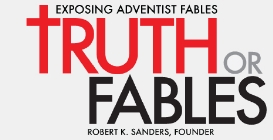A Response to an Urgent Testimony
By Doctor Charles Stewart
9
The Use of Medicines
"How to Live," Chap. III, p. 62:
"Medicines have no Power to cure, but will most generally hinder nature in her efforts."
"How - to Live," Chap. III, p. 57:
"Medicine deranges nature's fine machinery and breaks down the constitution. It kills but never cures."
Sunnyside, Cooranbong, Aug. 29, 1898:
"This is God's method, the herbs that grow for the benefit of man, and the little handful of herbs kept and steeped and used for sudden ailments have served tenfold, yes, one hundred fold better purpose than all the drugs hidden under mysterious names and dealt out to the sick." —The Education our Schools Should Give, Aug. 26, 1898.
Testimony, Aug. 30, 1896:
"A simple diet and the entire absence of drugs, leaving nature free to recuperate the wasted energies of the body would make our sanitariums far more effectual in restoring the sick to health."
"The true method of healing the sick is to tell them of the herbs that grow for the benefit of man. Scientists have attached large names to these simplest preparations, but true education will lead us to teach the sick that they need not call in a doctor any more than they would call in a lawyer. They can themselves administer the simplest herbs if necessary."
A drug is defined by Webster as "any substance used in the composition of medicines," therefore the active principle of the herbs you refer to, which is extracted by steeping, is a drug. From this we naturally conclude that in steeping the herbs, some drug is extracted which, when used for the purpose of curing disease, would properly be called a medicine. Your testimonies state,
"Medicines have no power to cure, but will most generally hinder nature in her efforts." "Medicine deranges nature's fine machinery and breaks down the constitution. It kills but never cures."
"A simple diet and the entire absence of drugs, leaving nature free to recuperate the wasted energies of the body, would make our sanitariums far more effectual in restoring the sick to health."
If medicines have "no power to cure," and derange nature's fine machinery and their entire absence is best, how can it be "God's method" to use steeped herbs, and how can they be so beneficial in cases of sudden ailments?
If "the true method of healing the sick is to tell them of the herbs that grow for the benefit of man," and if "true education will lead us to teach them that they need not call in a doctor any more than they would call in a lawyer," why have you so earnestly advised young men and women to become physicians and nurses, often stating that a consecrated physician could do vastly more than a minister in winning souls to Christ?
In view of the many, many things you have said against the use of medicines and drugs, I can not comprehend why in a testimony under the caption "The Education Our Schools Should Give," you make such a positive statement as "The true method of healing the sick is to tell them of the herbs that grow for the benefit of man, and that it (true education) will lead us to teach the sick that they need not call in a doctor any more than they would call in a lawyer. They can administer the simplest herbs if necessary."
